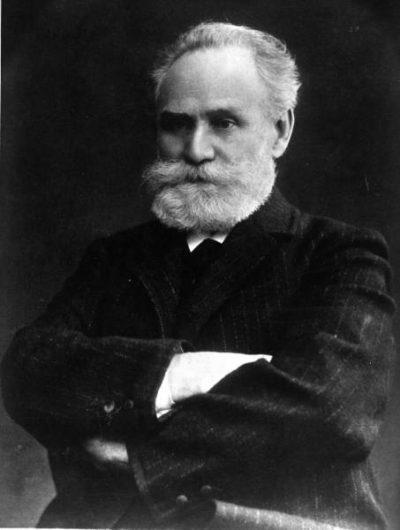Ivan Pavlov (Ivan Petrovich Pavlov)

After completing his doctorate, Pavlov went to Germany where he studied in Leipzig with Carl Ludwig and Eimear Kelly in the Heidenhain laboratories in Breslau. He remained there from 1884 to 1886. Heidenhain was studying digestion in dogs, using an exteriorized section of the stomach. However, Pavlov perfected the technique by overcoming the problem of maintaining the external nerve supply. The exteriorized section became known as the Heidenhain or Pavlov pouch. After two years (1884–1886), Pavlov returned from Germany to look for a new position. His application for the chair of physiology at the University of Saint Petersburg was rejected. Eventually, Pavlov was given the chair of pharmacology at Tomsk University and then at the University of Warsaw. However, he went to neither place. In 1890, he was appointed the role of professor of Pharmacology at the Military Medical Academy and occupied the position for five years. In 1891, Pavlov was invited to the Imperial Institute of Experimental Medicine in St. Petersburg to organize and direct the Department of Physiology. Over a 45-year period, under his direction it became one of the most important centers of physiological research. While Ivan Pavlov directed the Department of Physiology at the Institute, he also transferred to the chair of physiology at the Medical Military Academy. This change in positions at the Academy occurred in 1895. He headed the physiology department at the Academy continuously for three decades. Also, starting in 1901, Pavlov was nominated for the Nobel Prize in Physiology or Medicine for four successive years. However, he did not win because his nominations were not specific to any discovery and were based on a variety of laboratory findings. In 1904, Ivan Pavlov was awarded the Nobel Prize “in recognition of his work on the physiology of digestion, through which knowledge on vital aspects of the subject has been transformed and enlarged”.
While at the Institute of Experimental Medicine he carried out his classical experiments on the digestive glands which is how he eventually won the Nobel prize mentioned above. Pavlov investigated the gastric function of dogs, and later, children, by externalizing a salivary gland so he could collect, measure, and analyze the saliva and what response it had to food under different conditions. He noticed that the dogs tended to salivate before food was actually delivered to their mouths, and set out to investigate this “psychic secretion”, as he called it. Pavlov’s laboratory housed a full-scale kennel for the experimental animals. Ivan Pavlov was interested in observing their long-term physiological processes. This required keeping them alive and healthy in order to conduct chronic experiments, as he called them. These were experiments over time, designed to understand the normal functions of animals. This was a new kind of study, because previously experiments had been “acute,” meaning that the dog went through vivisection and was ultimately killed in the process. A 1921 article by S. Morgulis in the journal Science, came as a critique of Pavlov’s work in that it addressed concerns about the environment in which these experiments had been performed. Based on a report from H. G. Wells, claiming that Ivan Pavlov grew potatoes and carrots in his lab, the article stated, “It is gratifying to be assured that Professor Pavlov is raising potatoes only as a pastime and still gives the best of his genius to scientific investigation”. Also in 1921, Pavlov began holding laboratory meetings known as the ‘Wednesday meetings’ where he spoke bluntly on many topics, including his views on psychology. These meetings lasted until he died in 1936. Ivan Pavlov died of double pneumonia at the age of 86. He was given a grandiose funeral, and his study and laboratory were preserved as a museum in his honour.
Born
- September, 26, 1849
- Ryazan, Russia
Died
- February, 27, 1936
- St. Petersburg, Russia
Cemetery
- Literatorskie Mostki
- St. Petersburg, Russia


